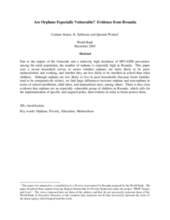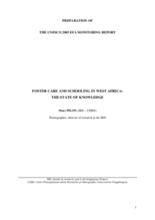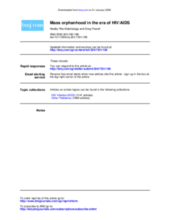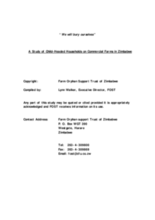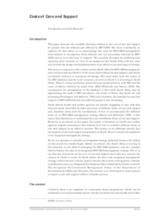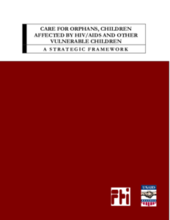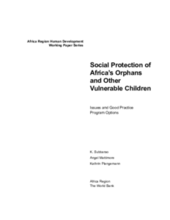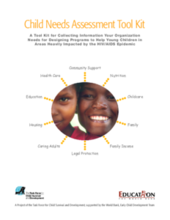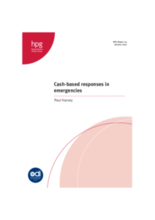Displaying 441 - 450 of 454
This research paper explores the condition of orphaned children in Rwanda. The paper urges the design of appropriate social protection mechanisms, including differentiated policy responses, conditional cash transfers and increased access to education.
Explores the relationship between fostering and education in West Africa. Identifies special need to focus on protecting and educating young girls.
A brief editorial which argues that only by addressing the fundamental causes of the HIV/AIDS epidemic, such as poverty and social exclusion, will a sustainable solution be achieved. Support for extended families and education for children affected by HIV/AIDS are needed to respond the crisis, as well as a larger scale effort to transfer resources, strengthen economies and secure investments throughout Africa.
A report of an action research study done by Farm Orphan Support Trust of Zimbabwe (FOST), to learn about the problems of child-headed households on commercial farms in Mashonaland Central and Manicaland provinces. The report includes the problems indentified and some recommendations for interventions, such as integration of psycho-social support and provision of material needs.
Discussion of the cost of care and support for children affected by HIV/AIDS in South Africa, with a recommendation for the combined use of state based interventions and community based solutions.
A report recording the proceedings of a conference co-sponsored by the World Bank and World Vision. The two-day conference sought to promote awareness of OVC issues around the world, to provide practitioners with a forum to share best practices and other insights, and to probe the role of social protection in implementing a balanced response. Participants included but were not limited to: community and donor organizations, NGOs.
A summary of comprehensive care needs for children affected by AIDS. Includes several case studies which highlight key components of comprehensive program design, implementation and evaluation.
Overviews the causes and consequences of the orphan crisis in Africa and analyzes current social protection responses. Suggests good practices in social protection of orphans and vulnerable children.
A comprehensive tool kit providing a methodology, questionnaire and software for assessing the needs of young children affected by the HIV/AIDS epidemic. Used to help design of service programs, secure funding, and monitor and evaluate programs specifically targeting the needs of young children and their families.
Argues that cash-based responses should play a growing role in humanitarian response to crises

